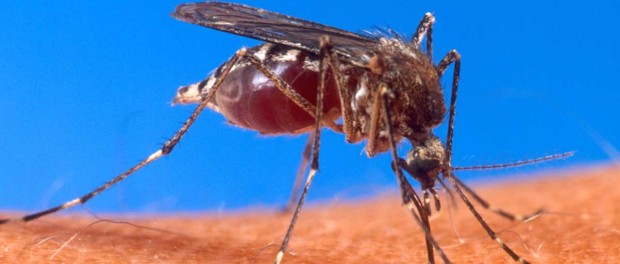Dengue Vaccine May Be Near – in Final Phase 3 Human Trials
As we wrote about in another Dengue post two years ago, Dengue Fever is rampant in the Caribbean, there is no treatment or vaccine and it can be fatal. Last year, Nine people died from Dengue in the region of the San Blas in Panama where we are going to be in a few weeks.
Now it seems, after more than 70 years of working toward a solution, it seems that a vaccine is imminent. Hurrah!!
Scientific American reports: By John Boslego on February 15, 2017 For many, a mosquito bite simply means a temporary annoyance. But for millions more, this tiny insect carries a very real threat of a serious disease. More than half of the world shares a home with the Aedes aegypti, a species of mosquito that harbors and spreads diseases like Zika, dengue fever and yellow fever. Zika has only recently become a global crisis, but dengue virus, which belongs to the same family of viruses as Zika, has afflicted countries around the globe for centuries.
Dengue fever can produce severe flu-like symptoms and, in some countries, severe dengue is a leading cause of death in children. Incidence of dengue has grown rapidly in recent years, with an estimated 390 million dengue infections per year. In fact, dengue endemic countries span five of the six World Health Organization (WHO) geographic regions. Outbreaks have also occurred in the United States and in Europe.
The global prevalence of this disease means that dengue can affect anyone in developing and developed countries, from residents to travelers to military personnel. Recent outbreaks, such as the lightning-fast spread of Zika, have brought to the forefront how important vaccines are for preventing disease. But it’s a long road.
Scientists have been working to develop a dengue vaccine for more than 70 years and only recently was the first one approved for use in people ages 9-45 years using a 3-dose regimen. While this represents a major step forward, we still need a dengue vaccine that is safe and effective for all populations, including young children.
Like medicines, developing vaccines takes a long time—upwards of a decade or more once in clinical development. They must be proven safe and effective before they can be distributed for use. But unlike medicines, vaccines are typically given to healthy people, and oftentimes young children or infants—meaning there’s a much higher safety standard for tolerability, which can slow the development process as the appropriate safety and efficacy checks are made.Clinical trials span geographic regions and include various age groups to ensure that a vaccine works across different populations.
The development of a safe and effective dengue vaccine candidate has faced many hurdles. An important challenge lies in the virus’s biological makeup. The dengue virus exists in four different forms, called serotypes. Each serotype can be transmitted from mosquito to human, and each can lead to dengue fever.
The quest to develop a vaccine that protects against all four serotypes has proved challenging, compounded by the fact that infection by one serotype can lead to a more severe form of dengue fever upon re-infection by a different serotype (an effect called antibody-dependent enhancement). Moreover, multiple serotypes are present in many of the 128 countries where dengue is endemic. This means we must ensure that vaccination is protective against all four serotypes.
New dengue vaccine candidates, including the one I oversee at Takeda’s global vaccine unit, are now in late-stage, Phase 3 clinical trials. The TIDES Phase 3 trial is evaluating safety of the vaccine candidate, as well as efficacy in protecting study subjects against dengue caused by any of the four virus serotypes. If successful, it will be another victory in the collective effort against mosquito-borne diseases. But the question remains—how do we work faster when there’s a massive outbreak, but no vaccine?
There’s reason for optimism as we look ahead. Both dengue and Zika belong to the same family of flaviviruses, and given the similarity in their makeup, we may actually speed vaccine development in one disease by learning more about the other. In other words, we may be able to speed up vaccine development for Zika using what we have learned from dengue vaccine development.
Having spent more than 40 years working in vaccine clinical development across governmental, non-profit and pharmaceutical organizations, I’ve found that the vaccine development process is very similar. What differ are the capabilities and strengths of each organization.
I believe that to meet rising costs and vaccine demand, public-private collaboration will be necessary to accelerate progress, bringing basic research together with manufacturing capabilities to ultimately deliver vital vaccines to those who need them the most. Together, we can do more through collaboration with regulatory authorities, NGOs and governmental agencies, such as working with the WHO to target a vaccine to be WHO prequalified.
Prequalification allows for a vaccine to be purchased by UNICEF and distributed more easily to those in need. In addition, a common goal should be to develop a manufacturing platform that can be used across different disease targets to accelerate development of future vaccines.
Takeda is taking a process platform approach to manufacturing, using bioprocess technologies to achieve higher yields, lower cost of goods and a smaller manufacturing footprint. In spite of the many hurdles, vaccine development has come a long way. Many have successfully dedicated their life’s work to developing the vaccines that keep us safe from a variety of diseases. As we continue to learn more, I’m confident that we can carry that same momentum into a future where a mosquito is just as harmless as it looks.


Leave a comment